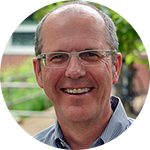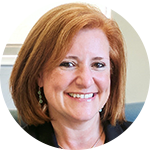Environmental Action Advisory Board
Northern New Jersey Community Foundation believes firmly that all Climate Action must be grounded in science. Members of the NNJCF Environmental Advisory Board come from leading institutions of higher education in the region. Advisory Board members serve as lead technical advisors to NNJCF in the design and implementation of research and programs, expanding the evidence base on which effective programming is built.
Dr. Serpil Guran, Rutgers University
Director, EcoComplex
Dr. Serpil Guran is the Director of Rutgers EcoComplex “Clean Energy Innovation Center”. She also manages the new EcoIgnite: Clean Technology Proof of Concept Center and Accelerator” program. Her responsibilities include management of the EcoComplex operations, programs, business incubator and facilities, as well as providing vision and leadership in establishing the EcoComplex as a center for the commercialization of environmental and clean energy technologies. She also serves as a Courtesy Associate Teaching Prof. at Rutgers University’s Plant Biology Program.
Dr. Guran is trained on thermochemical conversion (pyrolysis and gasification) of biomass and waste materials for production of fuels and chemicals. She specializes in research, development and assessment of sustainable biofuel and waste recycling technologies, and life cycle analysis of clean energy systems and alternative fuel production systems. Currently, she is working on Food-Energy-Water Nexus and Waste synergy by promoting integration of waste materials into development of Circular Carbon Economy.
Dr. Wolfram Hoefer, Rutgers University
Director, Center for Urban Environmental Sustainability
Dr. Wolfram Hoefer is an Associate Professor at the Rutgers of Department of Landscape Architecture and serves as Director of the Rutgers Center for Urban Environmental Sustainability (CUES). CUES is a collaboration between the Rutgers departments of Landscape Architecture, Ecology, and Environmental Sciences, providing an opportunity to combine the best science, engineering, and design expertise to address urban environmental issues. He holds a doctoral degree from Technische Universtät München 2000 and is a licensed landscape architect in the state of North-Rhine Westphalia, Germany
Dr. Hoefer developed numerous community outreach projects in the field of adaptive re-use of brownfields, urban resiliency, and infrastructure. His research and teaching focus is the cultural interpretation of brownfields as potential elements of the public realm. Further he is investigating the different cultural interpretations of landscapes by the general public in North America and Europe and how they influence public participation processes as well as professional approaches towards planning and design solutions for adaptive re-use of brownfields. This research informs Dr. Hoefer’s approaches of developing and applying innovative environmental planning and design approaches for New Jersey through the Center of Urban Environmental Sustainability.
Dr. Marion McClary, Fairleigh Dickenson University
Chair, Department of Biological Sciences
Dr. Marion McClary is a Professor of Biology and is Chair of the Department of Biological Sciences at Fairleigh Dickinson University (FDU). Dr. McClary received his B.S. in Marine Science from Richard Stockton State College of New Jersey, now Stockton University, in 1990 and received his Ph.D. in Zoology from Duke University in 1997. Dr. McClary serves on the Northern New Jersey Community Foundation Environmental Advisory Board, the Association of New Jersey Environmental Commissions Board of Trustees, and the Hackensack River Greenway Advisory Board. He is also Chair of the Faculty Athletics Representatives (FARs) of the North East Conference (NEC) and is a member of the NCAA Division I Committee on Academics. At FDU Dr. McClary is the NCAA Division I Faculty Athletics Representative and is the Coordinator of the Louis Stokes Alliances for Minority Participation (LSAMP) in STEM (Science, Technology, Engineering and Mathematics) which is a grant that is sponsored by the National Science Foundation (NSF) with the purpose of doubling the number of minorities who earn B.S. degrees in STEM.
Dr. McClary is a behavioral/physiological ecologist. He is interested in how behavior and physiology influence ecology and how the environment influences behavior, physiology, and ecology. In his past work he studied how chemoreception mediates gregarious settlement of barnacles. His later work has focused on studies of Spartina alterniflora and Phragmites australis as habitat for ribbed mussels in the Hackensack Meadowlands. His current work focuses on the circadian rhythm of hermit crabs.
Dr. Amy Tuininga, Montclair State University
Director, PSEG Institute for Sustainability Studies
Amy R. Tuininga, PhD, is the Director of Montclair State University’s PSEG Institute for Sustainability Studies. She grows partnerships among academics, government agencies, corporations, and community groups to solve sustainability problems. The PSEG ISS serves as a source for innovation in sustainability and environmental management, a model of academic-corporate-community partnerships that advances sustainability science and builds resilient communities. The Institute also serves as the home of the innovative Green Teams Internship Program that partners teams of students from diverse backgrounds, majors and universities with corporations and other organizations. Students receive training in sustainability, financial analyses, communications, professional development, and teambuilding and generate comprehensive reports and deliverables for host organizations. Projects involve the environment, energy, water, food, natural resources, and economies that collectively function to build sustainable communities.
Prior to Montclair State, Dr. Tuininga served as the Interim Chief Research Officer and Associate Vice President, as well as Co-Director of the Bronx Science Consortium, at Fordham University. Dr. Tuininga received her B.S. in Botany from the University of Washington, M.S. in Botany and Plant Pathology from Oregon State University, and her PhD in Ecology and Evolution from Rutgers, the State University of New Jersey, where she is a Rutgers 250 Fellow.



